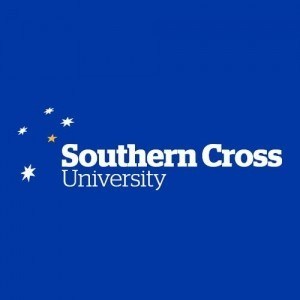This multidisciplinary program provides students with the understanding and techniques necessary to take part in the developing ecotourism, or even nature-based tourism market. The course includes a strong emphasis on hands on fieldwork and industry placements and development of partnerships with the tourism market. On successful completion of this course, students could have the ability to manage existing ecotourism enterprises sustainably, in addition to design and implement new ventures. The assortment of subjects studied comprise understanding biodiversity and landscapesand cultural heritage and native knowledge, interpretation and science communication, and environmental law, policy and planning. The ecological and social impacts of ecotourism are explored through existing case studies.
The Bachelor of Ecotourism at The University of Western Australia is a comprehensive program designed to equip students with the knowledge and skills necessary to promote sustainable tourism practices that protect the environment and support local communities. This interdisciplinary course combines elements of environmental science, business management, cultural studies, and hospitality to prepare graduates for careers in the growing ecotourism industry. Throughout the program, students explore the principles of ecological sustainability, conservation, and responsible tourism development. They gain a thorough understanding of ecosystems, biodiversity, and the impacts of tourism on natural landscapes. The curriculum emphasizes practical skills such as tour planning, marketing, and visitor management, alongside theoretical knowledge of environmental policies and ethical considerations in ecotourism. Students have opportunities to engage in fieldwork, internships, and community projects, allowing them to apply their learning in real-world settings. The program also covers topics related to indigenous culture and heritage, ensuring that future ecotourism initiatives respect and incorporate local traditions. Graduates of this program will be equipped to work for tourism operators, environmental organizations, government agencies, and community groups focused on sustainable tourism development. By promoting environmentally responsible practices, students are prepared to contribute to the preservation of natural resources while providing enriching experiences for travelers. The curriculum is designed to foster critical thinking, ethical decision-making, and entrepreneurial skills, enabling graduates to innovate within the ecotourism sector. The Bachelor of Ecotourism at UWA emphasizes a commitment to sustainability and responsible tourism, aligning with global efforts to reduce environmental impact and support local communities. Students will also develop leadership abilities and effective communication skills necessary for managing diverse stakeholder interests. Upon completion, graduates will be well-positioned to launch careers that help to balance economic growth with environmental preservation, ensuring that tourism benefits both people and the planet.
An Associate's degree, or an equivalent qualification, as recognized by UWA. English language requirements apply.
The University of Western Australia offers a comprehensive approach to financing studies for students enrolled in its degree programmes, including those focused on Ecotourism. The university provides a variety of financial support options to help students fund their education and manage living expenses during their period of study. This includes government scholarships, such as the Commonwealth supported places, which reduce the overall course fees for eligible domestic students. International students are also offered several scholarship opportunities based on academic merit and need, which can significantly offset tuition costs.
Additionally, UWA provides students with access to their extensive range of financial aid programs, including scholarships, grants, and bursaries designed specifically to support students pursuing environmental and tourism-related degrees. These are awarded based on different criteria such as academic achievement, financial hardship, or special talents. For students needing further assistance, the university's financial aid office offers tailored advice on managing study costs and accessing external funding sources, including student loans and private scholarships.
UWA also encourages part-time work opportunities both on and off campus, enabling students to earn income while continuing their studies. The university’s career services assist students in finding relevant work placements or internships, which not only support their financial situation but also enhance their practical experience in ecotourism and sustainable tourism fields.
Moreover, UWA promotes awareness of international financial programs, such as education loans and scholarships offered by external organizations, which students can leverage to study abroad or participate in exchange programs related to ecotourism studies. The university’s financial support initiatives aim to make higher education accessible and affordable, fostering the development of skilled professionals who can contribute to sustainable tourism industry practices. Overall, the combination of on-campus support, external scholarships, and employment opportunities ensures students enrolled in ecotourism programmes at UWA can effectively finance their studies while gaining valuable educational and practical experiences.
The University of Western Australia offers programs related to Ecotourism, designed to equip students with the knowledge and skills necessary to promote sustainable tourism practices that conserve natural environments and benefit local communities. The curriculum typically covers a broad range of topics, including environmental management, sustainable travel planning, biodiversity conservation, cultural heritage preservation, and responsible tourism development. Students explore the principles of ecotourism, learning how to develop and manage tourism initiatives that minimize ecological impact while providing authentic experiences for travelers. The program may also include fieldwork, internships, and practical projects that allow students to apply theoretical knowledge in real-world settings. Interdisciplinary courses often integrate aspects of ecology, economics, and social sciences to prepare graduates for diverse roles within the tourism industry, conservation organizations, government agencies, and private enterprises. The program emphasizes the importance of balancing economic development with environmental sustainability and cultural sensitivity. Graduates are expected to possess strong skills in environmental assessment, stakeholder engagement, and sustainable business planning. The university encourages research and innovation in ecotourism strategies, promoting best practices and industry standards that support ecological integrity and community well-being. The program aims to produce graduates who are capable of designing, implementing, and managing ecotourism ventures that contribute to the sustainable development goals. Collaborative partnerships with industry and community groups are often part of the learning experience, providing students with valuable networking opportunities. A focus on global perspectives ensures that students understand international standards and practices in ecotourism, preparing them for careers worldwide. The university's facilities and resources support experiential learning, including access to protected areas, ecological reserves, and tourism sites. Overall, the program aligns with UWA's commitment to sustainability and responsible management of natural resources, fostering professionals who can lead positive change within the ecotourism industry.









